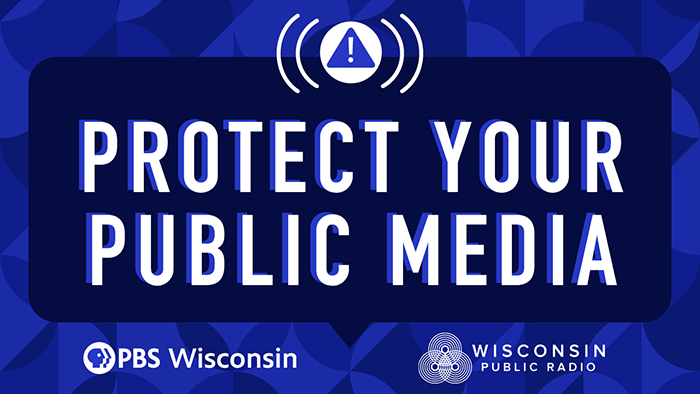Frederica Freyberg:
Turning to western Wisconsin, in March, the city of La Crosse cleared 130 tons of abandoned items at long-term overnight camping sites along the Black River shoreline. The campsites and others are where people experiencing homelessness in La Crosse had taken up residence. As part of a five-year plan to end long-term homelessness, bans on camping on city property are already in place. But with nowhere to go, campers pop up on other sites. It’s been a thorny problem for the city between trying to help the increasing number of unsheltered people in the aftermath of COVID and being responsive to community calls for action. La Crosse Mayor Mitch Reynolds joins us now. Thanks for being here.
Mitch Reynolds:
I appreciate you having me on. Thanks so much.
Frederica Freyberg:
Your Pathways Home plan states that encampments will no longer be tolerated once your new homeless response system is up and running. Is that system up and running?
Mitch Reynolds:
No. Implementation of Pathways Home plan began in January. At this point what we’re doing is data collection. That’s the first part. Then we move on to the other parts that include where we identify the surge housing, how much we need of emergency shelter, how much we need, because we don’t really want shelters. We want to move people directly from being unsheltered to a housing option immediately.
Frederica Freyberg:
According to the city’s documentation, there are about 200 individuals and 20 families experiencing chronic homelessness in La Crosse. Describe kind of the three prongs of the Pathways Home program to try to get people into permanent housing.
Mitch Reynolds:
It’s complicated, frankly, but — and just to be clear, you know, not everybody who is chronically homeless is living in a tent in the marsh right now. We do have dozens of people who are living in various places throughout the city, who are in various spots, like in the marsh and the forested areas and places that are not in La Crosse. A lot of people, and this is typical, we have people in our community who are not — they are — they may have temporary shelter with a friend or in a relative’s spare bedroom or on a couch or something along those lines. We have families that are — we’ve had a lot of issues with children who are homeless in the city of La Crosse for a really long time. Part of this is really just, and one of the areas in the Pathways Home plan is just trying to create more housing options in the city. And this work that we’re doing all the time, and frankly, that’s the most critical part of the Pathways Home plan, is that. Providing adequate supportive services is another absolutely critical part, but the most important part of Pathways Home is having the city and the county be the ones who are driving the bus, being the ones who are managing the homeless response. This is just — it’s almost exactly what the city and the county of Milwaukee did. In fact, I just talked to Hector Cologne this morning, who is now head of Lutheran Social Services and was the executive director of Milwaukee County Health and Human Services, and they orchestrated that a path to almost functional zero in Milwaukee County by doing this very same thing. From my perspective, that’s the most critical part is that the city and county are, for the first time ever, getting together and really managing the response to homelessness. We’re not leaving it to private service agencies. We’re directing traffic on this one, and I think that accountability, for me, that’s the most critical part of it. But certainly providing supportive services and then providing adequate housing, finding that adequate housing, that is an absolutely essential part of this.
Frederica Freyberg:
Because how hard is it for you as mayor to see this enduring problem?
Mitch Reynolds:
Feels like failure every single day. That’s how it feels. It’s constant work. It’s exhausting. But I’m not going to quit. It is absolutely critical for our community to address the needs of the most vulnerable for those individuals and for our community as well. We have to — we have to be able to believe that we are a kind of community that looks out for those who are living on the edge of the abyss. It’s critical work and it’s something I’m completely dedicated to. But, yeah, Frederica, it feels like failure every single day.
Frederica Freyberg:
Does the city and county of La Crosse have the capacity and resources to meet your goal of eliminating long-term homelessness by 2029?
Mitch Reynolds:
We do. We need more. I mean, when I was speaking to Mr. Cologne this morning, we were talking about the need for there to be community support through various donations, support through business, community organizations, individuals, that type of thing. It’s going to take money. And I think that that’s something that we’ll be working on, but we have resources. The county has personnel resources that they can utilize. They just had to shift focus away from homelessness and more towards the needs of the homeless individuals, their mental health needs, the addiction issues that they face, that type of thing. And I think that they’re more than willing to do that. But also because that — because there is coordination between the city and the county, so there’s definitely going to be some financial resources that we need and there’s definitely going to be a need to create more housing options within the city of La Crosse.
Frederica Freyberg:
We leave it there, Mayor Mitch Reynolds. Thanks very much.
Mitch Reynolds:
I appreciate you having me on. Thank you so much.
Search Episodes

Donate to sign up. Activate and sign in to Passport. It's that easy to help PBS Wisconsin serve your community through media that educates, inspires, and entertains.
Make your membership gift today
Only for new users: Activate Passport using your code or email address
Already a member?
Look up my account
Need some help? Go to FAQ or visit PBS Passport Help
Need help accessing PBS Wisconsin anywhere?

Online Access | Platform & Device Access | Cable or Satellite Access | Over-The-Air Access
Visit Access Guide
Need help accessing PBS Wisconsin anywhere?

Visit Our
Live TV Access Guide
Online AccessPlatform & Device Access
Cable or Satellite Access
Over-The-Air Access
Visit Access Guide
 Passport
Passport







Follow Us